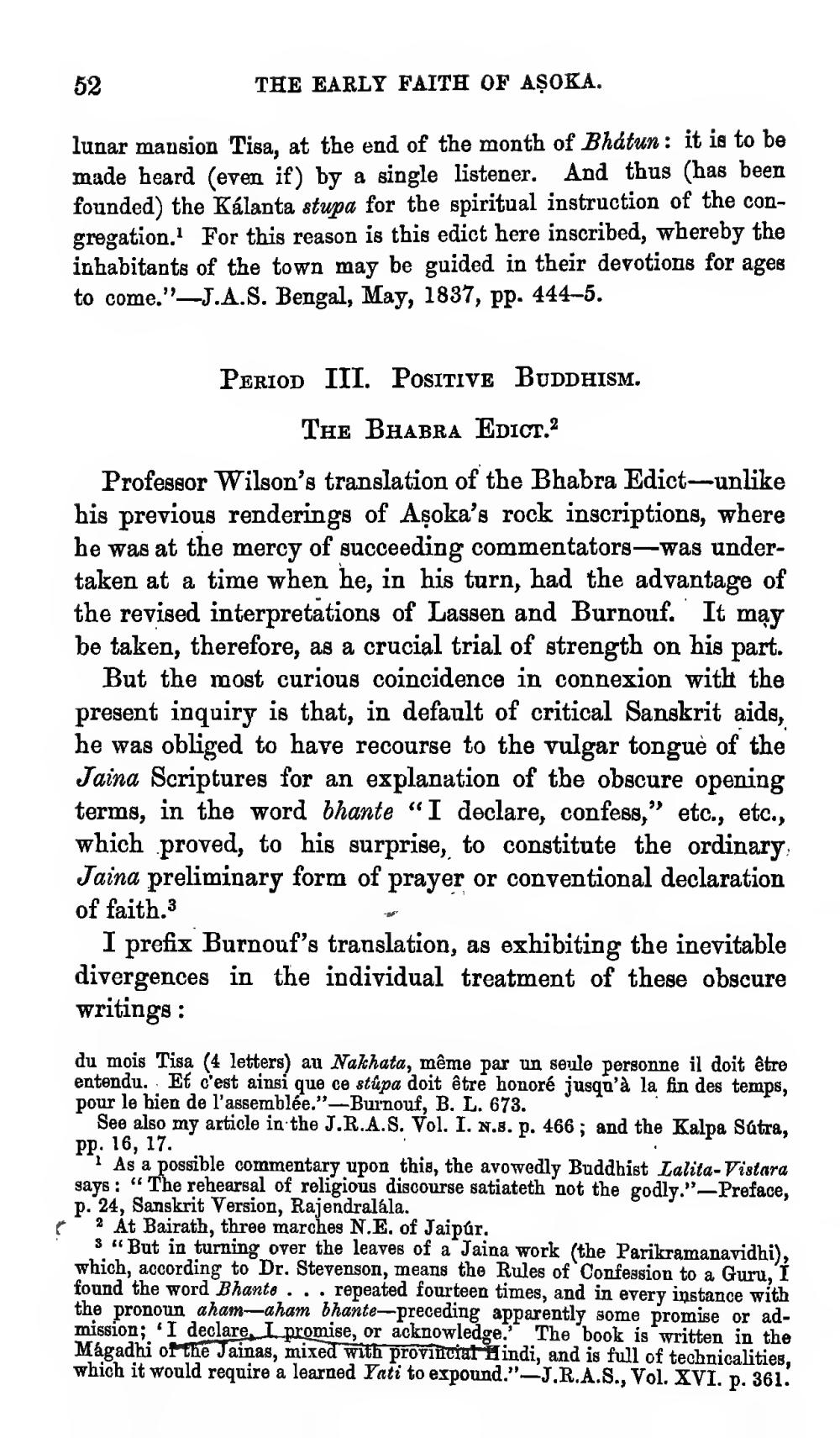________________
THE EARLY FAITH OF ASOKA.
lunar mansion Tisa, at the end of the month of Bhátun: it is to be made heard (even if) by a single listener. And thus (has been founded) the Kálanta stupa for the spiritual instruction of the congregation. For this reason is this edict here inscribed, whereby the inhabitants of the town may be guided in their devotions for ages to come."-J.A.S. Bengal, May, 1837, pp. 444-5.
52
PERIOD III. POSITIVE BUDDHISM.
THE BHABRA EDICT.2
Professor Wilson's translation of the Bhabra Edict-unlike his previous renderings of Asoka's rock inscriptions, where he was at the mercy of succeeding commentators-was undertaken at a time when he, in his turn, had the advantage of the revised interpretations of Lassen and Burnouf. It may be taken, therefore, as a crucial trial of strength on his part.
But the most curious coincidence in connexion with the present inquiry is that, in default of critical Sanskrit aids, he was obliged to have recourse to the vulgar tongue of the Jaina Scriptures for an explanation of the obscure opening terms, in the word bhante "I declare, confess," etc., etc., which proved, to his surprise, to constitute the ordinary Jaina preliminary form of prayer or conventional declaration of faith.3
I prefix Burnouf's translation, as exhibiting the inevitable divergences in the individual treatment of these obscure writings :
du mois Tisa (4 letters) au Nakhata, même par un seule personne il doit être entendu. Et c'est ainsi que ce stúpa doit être honoré jusqu'à la fin des temps, pour le bien de l'assemblée."-Burnouf, B. L. 673.
See also my article in the J.R.A.S. Vol. I. N.s. p. 466; and the Kalpa Sútra, PP. 16, 17.
says:
As a possible commentary upon this, the avowedly Buddhist Lalita-Vistara "The rehearsal of religious discourse satiateth not the godly."-Preface, p. 24, Sanskrit Version, Rajendralála.
2 At Bairath, three marches N.E. of Jaipur.
3"But in turning over the leaves of a Jaina work (the Parikramanavidhi), which, according to Dr. Stevenson, means the Rules of Confession to a Guru, I found the word Bhante... repeated fourteen times, and in every instance with the pronoun aham-aham bhante-preceding apparently some promise or admission; I declare, I promise, or acknowledge. The book is written in the Magadhi of the Jainas, mixed with provincial Hindi, and is full of technicalities, which it would require a learned Yati to expound."-J.R.A.S., Vol. XVI. p. 361.




